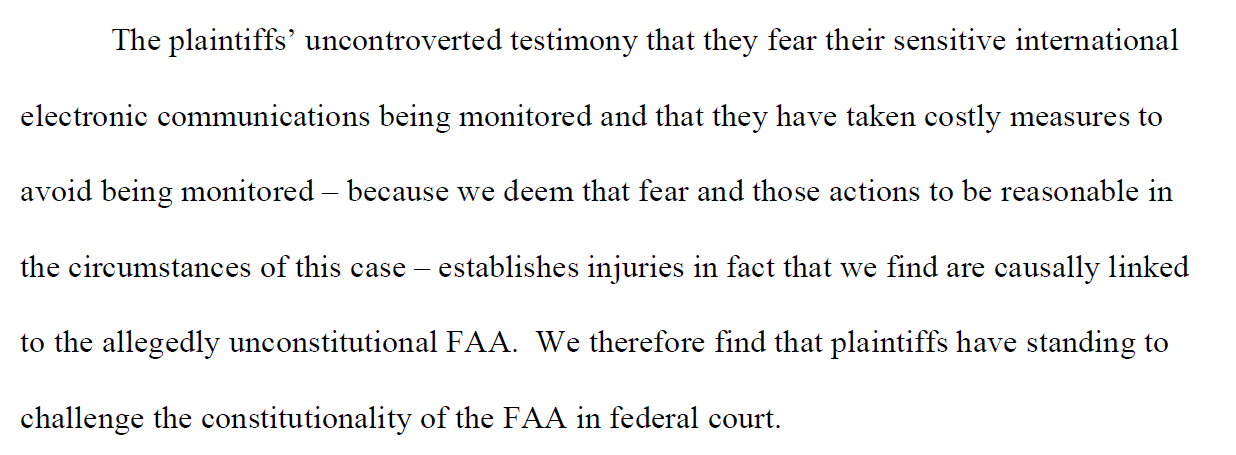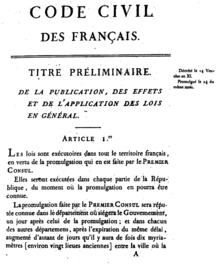 The 2nd Circuit Court ruled that a law suit (pdf) challenging the constitutionality of the FISA law which shields government eavesdropping from judicial review, or as Glen Greenwald says, “(places) secret executive surveillance above and beyond the rule of law”, can move forward in the courts. Finally, there will be a review of the law that Obama promised to vote against, then voted for promising to revise after he was elected and now wields with the same impunity as his predecessor to cover up war crimes and protect war criminals in the name of national security. The bill not only gives expanded eavesdropping powers without a warrant but also gave retroactive amnesty to the telecommunication companies which participated in Bush’s illegal spying program.
The 2nd Circuit Court ruled that a law suit (pdf) challenging the constitutionality of the FISA law which shields government eavesdropping from judicial review, or as Glen Greenwald says, “(places) secret executive surveillance above and beyond the rule of law”, can move forward in the courts. Finally, there will be a review of the law that Obama promised to vote against, then voted for promising to revise after he was elected and now wields with the same impunity as his predecessor to cover up war crimes and protect war criminals in the name of national security. The bill not only gives expanded eavesdropping powers without a warrant but also gave retroactive amnesty to the telecommunication companies which participated in Bush’s illegal spying program.
At Salon, Greenwald explains the law suit:
In the case brought by the ACLU, the plaintiffs were a variety of human rights activists, lawyers and journalists (including Naomi Klein and Chris Hedges), who argued that both they and their sources have a reasonable fear of being subjected to this expanded surveillance, and that fear– by rendering them unable to perform their jobs and exercise their Constitutional rights — constitutes sufficient harm to vest them with “standing” to challenge the new eavesdropping law. In response, the Bush administration argued — as always — that the plaintiffs’ inability to prove that they were actually targeted by this expanded surveillance precluded their suing; their mere “fear” of being targeted, argued the Bush DOJ, was insufficient to confer standing to sue.
In late 2008, a lower court judge granted the Bush argument and dismissed the ACLU’s lawsuit on “standing” grounds. On appeal, the Obama DOJ — needless to say — faithfully adopted exactly the Bush argument to demand dismissal of the ACLU’s lawsuit on procedural grounds of “standing,” i.e., without assessing the merits of whether this law violates the Fourth Amendment.
Yes, the Obama DOJ is now using the very same argument that was used by the Bush DOJ. But now a three judge panel ruled unanimously that the plaintiffs do have standing:

(click on image to enlarge)


 On this day in 1804,
On this day in 1804,  The big business news that hit the “airways” yesterday was the announcement that
The big business news that hit the “airways” yesterday was the announcement that
Recent Comments